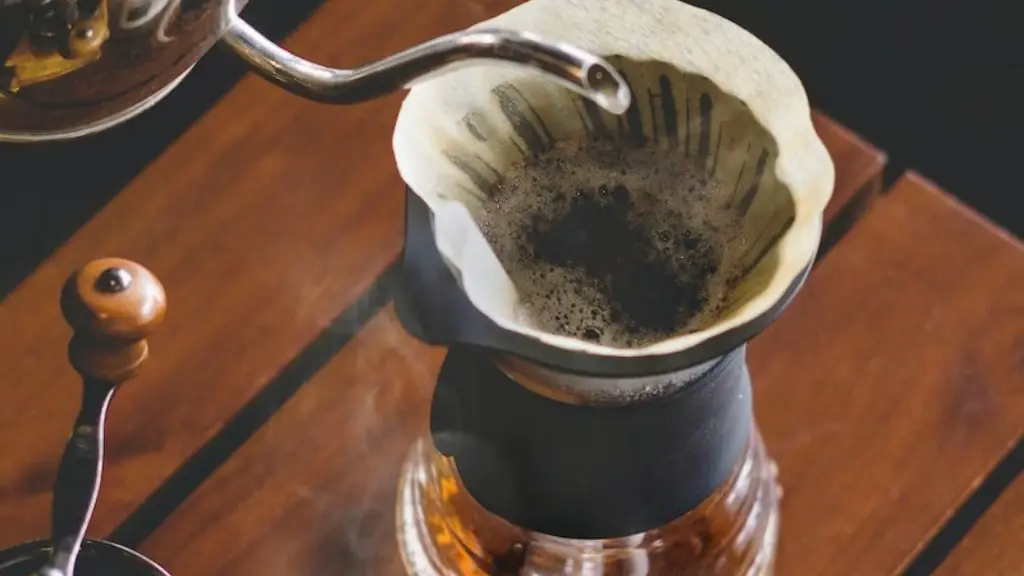Pericarditis is an inflammation of the membrane surrounding the heart that can cause chest pain and other heart problems. The causes vary and can be a symptom of an underlying infection, trauma to the heart, or other serious medical conditions. Many cases of pericarditis are related to an infection such as the flu and can be treated with antibiotics. While many of the treatments focus on relieving the inflammation and any resulting pain, there are some cases in which the patient may also be prescribed medications to manage specific symptoms. Can you drink coffee with pericarditis?
Caffeine, a stimulant found in coffee, tea, energy drinks, and some medications, is a popular choice for many people in the morning. However, for individuals with chronic pericarditis, caffeine may not be the best choice. Caffeine can cause increased inflammation throughout the body and can increase the risk of chest pain and other symptoms associated with pericarditis. Additionally, caffeine can also raise blood pressure and increase the heart rate, both of which can be dangerous for individuals with pericarditis.
Many experts recommend limiting or eliminating caffeine from the diet if you have been diagnosed with pericarditis. It is important to talk to your doctor before making any changes to your diet. While avoiding caffeine may be difficult, it may be necessary to prevent any further complications. Additionally, your doctor may recommend other lifestyle changes that can help manage the inflammation and pain associated with pericarditis, such as avoiding alcohol and cigarettes, staying well-hydrated, and reducing stress. Some medications can also reduce the risk of further heart damage and improve symptoms associated with pericarditis.
It is important to be aware of the potential risks associated with drinking too much caffeine when you have pericarditis. Caffeine can often increase the risk of chest pain, high blood pressure, heart palpitations, and increased inflammation. Additionally, when taken in conjunction with other medications, caffeine can interact in dangerous ways and cause unexpected side effects. It is important to talk to your doctor about any medications you are taking and to discuss potential side effects before making any changes to your diet.
Treatment
The treatment of pericarditis depends on the cause and severity of the condition. In some cases, medications such as anti-inflammatory drugs and antibiotics may be used to manage the symptoms. If the pericarditis is caused by an underlying infection, antibiotics may be used to eradicate the infection. In more severe cases, surgery may be necessary to repair the damage to the heart and membrane. Regardless of the treatment regimen, avoiding or limiting caffeine intake is important to reduce the risks associated with the condition.
Expert Insight
According to Dr. James B. Fong, an internal medicine specialist with expertise in cardiac diseases and pericarditis, caffeine has a number of possible benefits and risks when it comes to pericarditis. He cites a study published in the journal Heart which looked at the effect of caffeine on the heart. The study found that while there was some evidence of a potential protective effect, the evidence was not strong enough to recommend avoiding caffeine altogether.
Dr. Fong adds that caffeine should be limited to no more than two cups of coffee per day and that patients should consult with their doctors before making any changes to their diet. He also notes that if the patient is taking any other medications, any interactions with caffeine should be discussed with their doctor.
Alternatives
While caffeine may have some health risks associated with it, eliminating it from your diet completely is rarely necessary or recommended. Instead, there are many healthy alternatives that can provide the same energy boost without the added risks. Coconut water, green tea, smoothies, and even some energy drinks can provide the energy boost you need without any of the negative side effects.
Herbal teas such as chamomile, hibiscus, and rooibos are also excellent substitutes for coffee, as are natural energy sources such as fruits, nuts, and seeds. Additionally, getting adequate amounts of sleep, exercising regularly, and eating a balanced diet can all help to boost energy levels and improve overall health.
Foods to Avoid
There are certain foods that can also increase inflammation and worsen symptoms of pericarditis. These include processed and fried foods, refined sugar, and red meat. These foods can aggravate existing inflammation and put additional strain on the heart. It is best to limit or avoid these foods if you have been diagnosed with pericarditis.
In addition to avoiding certain foods, it is important to stay well-hydrated. This can help to flush out toxins and promote healthy circulation. Eating a balanced diet and getting adequate amounts of sleep can also help to combat inflammation and boost energy levels. Additionally, exercising regularly can help reduce stress and promote overall health.
Conclusion
In conclusion, it is important to talk to your doctor before making any changes to your diet if you have been diagnosed with pericarditis. While caffeine can have some health benefits, it can also aggravate existing symptoms and increase the risk of further complications. Additionally, there are many healthy alternatives that can provide the same energy boost without the risks associated with caffeine. Finally, avoiding certain foods and staying well-hydrated can help reduce inflammation and promote overall health.



